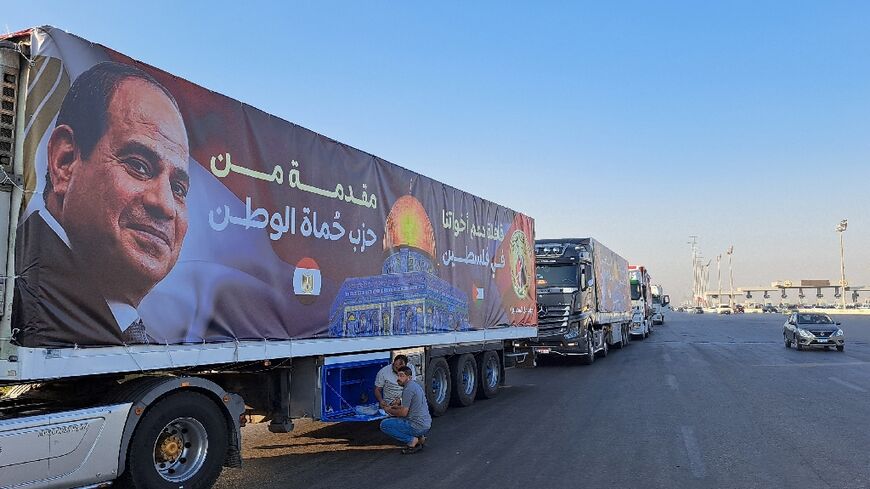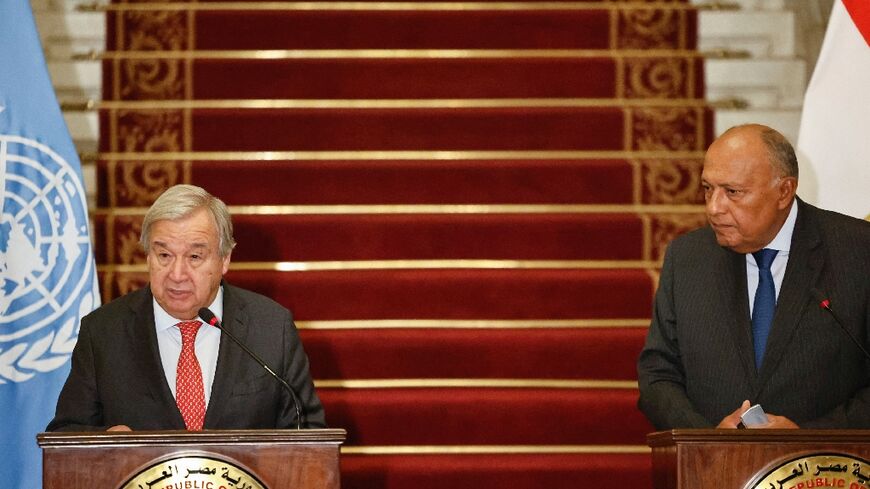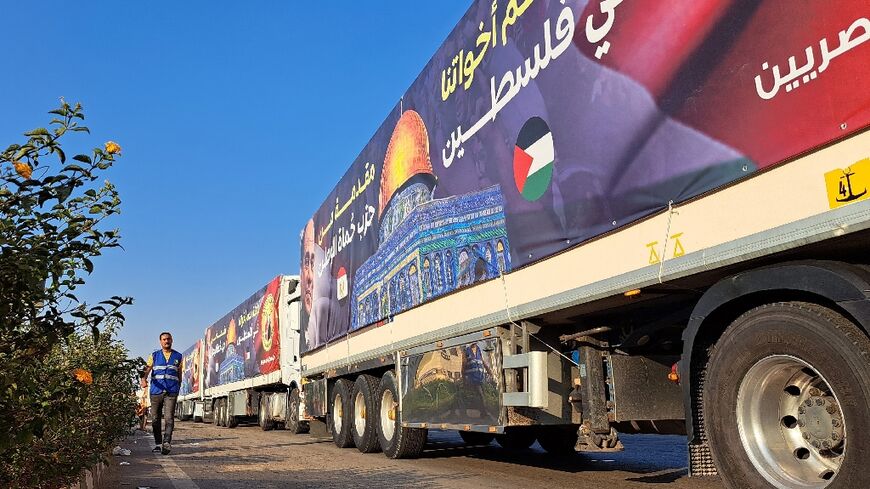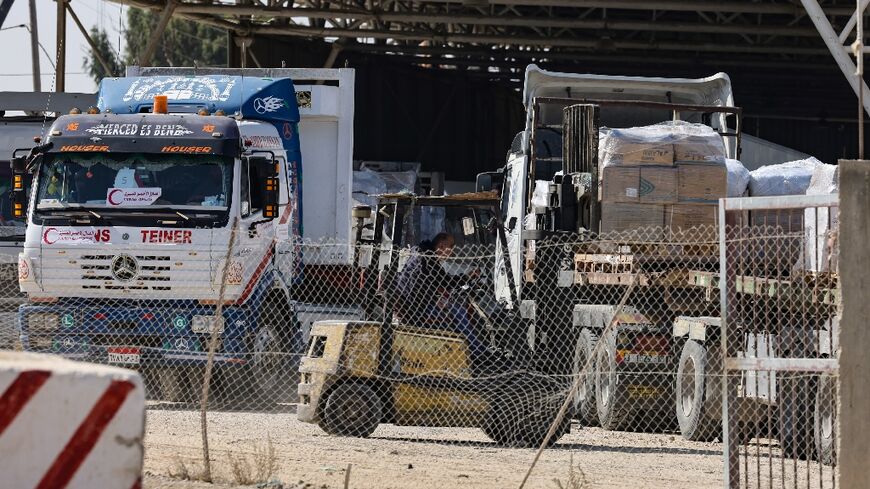Gaza aid stuck in Egypt as Cairo blames Israel

Truckloads of aid bound for the war-torn Gaza Strip remained on the Egyptian side of the border Wednesday, as Egypt blamed Israel for not allowing it to reach desperate civilians.
Foreign Minister Sameh Shoukry rejected as "inaccurate" claims that Egypt had kept the only border crossing with Gaza not controlled by Israel closed.
"As far as we're concerned, the Rafah crossing on our side is officially open," Shoukry told the BBC on Tuesday.
He said aid lorries were awaiting guarantees of "safe conditions" after the crossing was "subjected to four aerial bombardments that have made the crossing inaccessible".
In a separate interview with CNN, Shoukry said one of the strikes came as "we were trying to repair damage, and four Egyptian workers were injured".
Gaza has nearly run out of electricity, food, water and fuel, after 12 days of siege and air and artillery bombardment by Israel in retaliation for a shock Hamas attack launched on October 7 that killed at least 1,400 people, most of them civilians.
About 3,000 people have been killed in Gaza, where emergency responders say rescue operations have become virtually impossible and mortuaries have run out of space.
On the Egyptian side of the Rafah crossing, more lorries joined the hundreds already waiting Wednesday, according to aid workers who said they still do not have a timeline for when they will be allowed through.
Gaza -- a tiny coastal enclave home to 2.4 million people -- has been under a joint Egyptian-Israeli blockade since 2007.
Shoukry said Tuesday that "once safe for transit", the corssing will allow Egypt to "receive, for humanitarian purposes, those who need medical assistance, who are in need of special attention, as is the normal status of the crossing".
Pressure had also been put on Egypt to accept Gaza refugees into its territory, which Cairo has rejected as a fresh forced displacement of Palestinians.
"Egypt will not have the transfer of the responsibility of Israel to itself. This is the responsibility of Israel as the occupying power, it must provide for the safety of civilians," Shoukry said.
Repeated attempts to broker an agreement have floundered since Egypt earlier this week refused to allow foreign nationals to exit until aid is allowed in.
UN humanitarian chief Martin Griffiths arrived in Cairo Tuesday night to help negotiate aid access.





